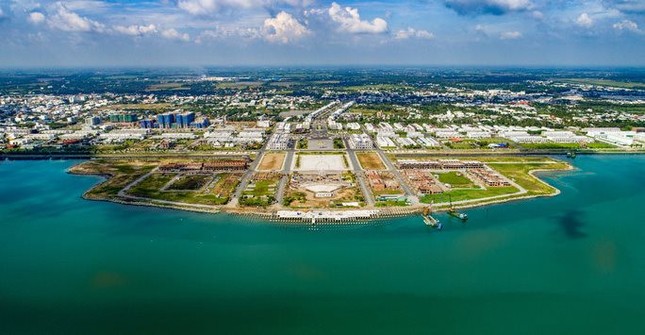New Land Law Regulations to Take Effect in April 2024
The Vietnamese Land Law of 2024 introduces new regulations that will come into effect on April 1, 2024. These regulations, outlined in Articles 190 and 248, address coastal encroachment and forest land use, respectively.
Encouraging Coastal Encroachment Activities
Article 190 of the Land Law promotes coastal encroachment activities while ensuring adherence to national sovereignty, security, and territorial rights. The state encourages organizations and individuals to utilize capital, technology, and expertise in carrying out coastal encroachment activities. Additionally, the law provides support and incentives for investors who engage in coastal encroachment activities in accordance with legal provisions.

Caption: Article 190 of the Land Law stipulates that coastal encroachment activities will be enforced from April 1, 2024.
To ensure responsible coastal encroachment, certain principles must be followed, including safeguarding national interests at sea, complying with relevant laws and international agreements, and considering socio-economic and environmental factors such as sustainable development, biodiversity, natural influences, climate change, and rising sea levels. Furthermore, coastal encroachment activities must align with provincial land use planning, urban development plans, and other relevant regulations.
Efficient utilization of marine resources, balancing the interests of stakeholders involved in coastal encroachment activities, and ensuring public access to the sea are also essential components of these regulations. Coastal encroachment activities must be undertaken as investment projects or project components, as defined by the law.
Approval for Coastal Encroachment in Certain Areas
Coastal encroachment activities in specific areas must receive approval from the National Assembly and the Prime Minister. These areas include:
- Historical and cultural heritage sites recognized under cultural heritage laws
- Natural heritage sites designated under environmental protection laws
- National parks, nature reserves, landscape protection areas, important wetlands, and areas covered by biodiversity and forestry laws
- Marine conservation areas, fisheries resource protection areas, fishing ports, and storm shelters for fishing vessels as stipulated by fisheries laws
- Ports, port approach waters, berthing areas, transfer areas, storm avoidance areas, pepper trading and quarantine zones, maritime traffic lanes, and water areas designated for other supporting construction projects as per maritime laws
- River estuaries and areas planned and designated for defense and security purposes
Management Responsibility and Oversight
The Land Law designates the Ministry of Natural Resources and Environment to assist the government in managing coastal encroachment activities, including inspection and supervision of such activities and the management of encroachment areas, in accordance with legal provisions. Other ministries and relevant authorities are responsible for managing and inspecting coastal encroachment activities within their respective mandates. They also issue regulations, guidelines, and standards related to coastal encroachment activities and economic and technical indicators.
Provincial People’s Committees have the responsibility of managing encroachment areas within their jurisdictions, including land allocation and leasing for encroachment purposes, inspection and supervision of encroachment activities, and managing the use of encroachment areas in line with legal provisions.
It is important to note that the allocation of coastal areas for encroachment activities should be conducted concurrently with land allocation and leasing for investment projects. Detailed guidelines for this process will be established by the government.
Amendments to Forest Land Use Laws
Article 248 of the Land Law introduces amendments to the Forest Law No. 16/2017/QH14, which was further amended by Law No. 16/2023/QH15. These amendments address principles and criteria for forest allocation, forest leasing, and conversion of forest land for different purposes.
For the full text of the Land Law and further information, you can visit Business Today.
